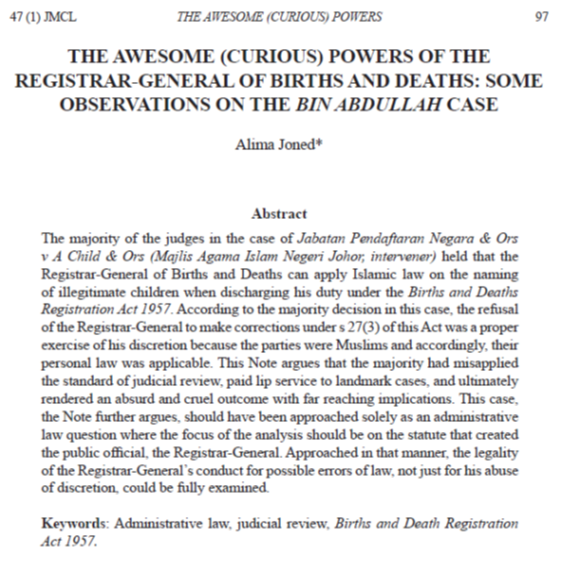The Awesome (Curious) Powers of the Registrar-General of Births and Deaths
Some Observations on the Bin Abdullah Case
Keywords:
Administrative law, judicial review, birth registration, death registration, Births and Death Registration Act 1957Abstract
The majority of the judges in the case of Jabatan Pendaftaran Negara & Ors v A Child & Ors (Majlis Agama Islam Negeri Johor, intervener) held that the Registrar-General of Births and Deaths can apply Islamic law on the naming of illegitimate children when discharging his duty under the Births and Deaths Registration Act 1957. According to the majority decision in this case, the refusal of the Registrar-General to make corrections under s 27(3) of this Act was a proper exercise of his discretion because the parties were Muslims and accordingly, their personal law was applicable. This Note argues that the majority had misapplied the standard of judicial review, paid lip service to landmark cases, and ultimately rendered an absurd and cruel outcome with far reaching implications. This case, the Note further argues, should have been approached solely as an administrative law question where the focus of the analysis should be on the statute that created the public official, the Registrar-General. Approached in that manner, the legality of the Registrar-General’s conduct for possible errors of law, not just for his abuse of discretion, could be fully examined.
Downloads



